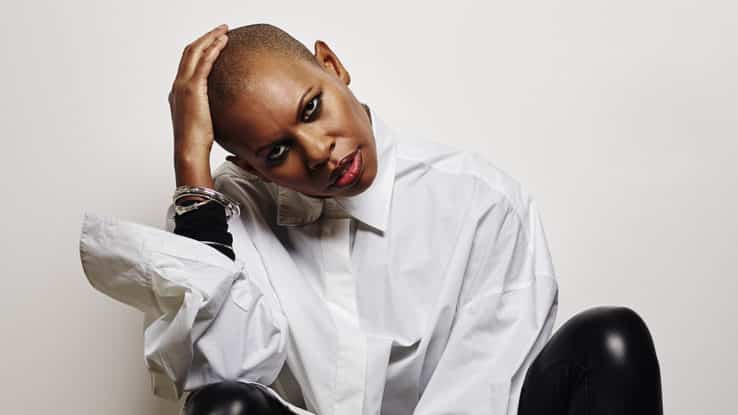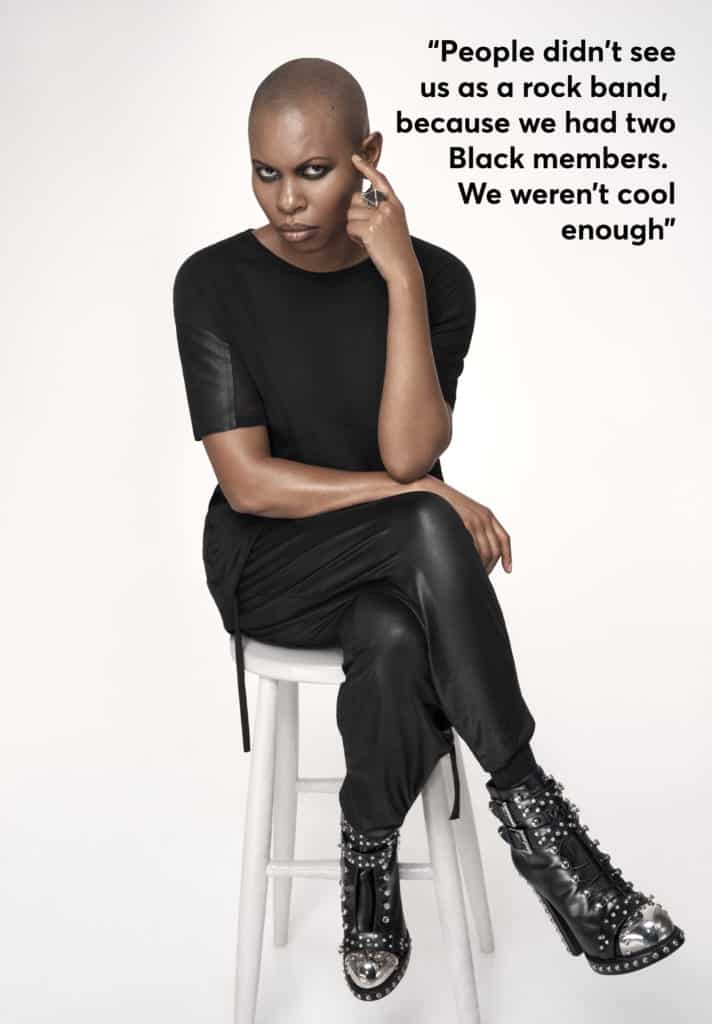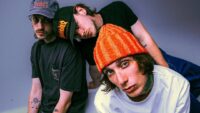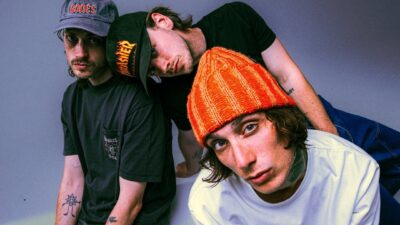Music

Interview
Skin: “When I’m the one getting punched in the face, I have to fight back”
As Skunk Anansie return with their angriest, most incendiary track yet, lead singer Skin talks political activism, Glastonbury backlash and giant duck outfits.
“What the f**k is going on? Literally, what the f**k is going on?” Skin still can’t get her head around the last few years. Spending lockdown in New York with her wife and new-born baby, she watched America turn from bad to worse as the fallout of the Trump presidency followed BLM protests and anti-vax misinformation into a toxic climate that still seems to make very little sense.
“It’s this idea of ‘alternative facts’,” she sighs. “Watching how social media killed the idea of truth. It’s this domino effect across the world, this huge rise in right-wing extremism… This idea that women are just containers for children… There’s a real Handmaid’s Tale vibe to some of the mentality over here.”
Enter ‘Piggy’. The first single Skunk Anansie has released in two years is one of the most aggressive tracks the band have ever made – a hard-edged anti-capitalist anthem that sticks all the problems of last two years on a sharpened stick. “I actually wrote the lyrics on the tube on the way to the studio,” says Skin, chatting from her apartment in New York, part laser focused rage, part mischievous sense of humour. “It just felt kind of like what the world’s about right now. It’s this 1984 Piggy character that wants to get power and money and control by any means necessary, and it doesn’t matter what’s true or not anymore.”
Originally courting controversy in the early 90s with underground hits ‘Selling Jesus’ and ‘Little Baby Swastikka’, Skunk Anansie hit the mainstream with their debut album Paranoid & Sunburnt, before follow-up records Stoosh and Post Orgasmic Chill made them one of the biggest names on the alt-scene. Tracks like ‘Hedonism’, ‘Weak’, ‘Brazen’, ‘Twisted’ and ‘All I Want’ shot them far enough up the charts to headline Glastonbury in 1999 – making them the last band to stand on the Pyramid Stage in the 20th Century. More importantly, the festival appearance made Skin the first Black British artist to headline (cue an apology from Stormzy in 2017) as well as the first Black female artist on the mainstage (Beyonce’s apology is still in the mail…).
Splitting in 2001 before reuniting in 2009, Skunk Anansie’s last album (25Live@25) was still halfway through its tour when COVID forced everything to a standstill. Spending lockdown mentoring at NYU and building a home studio as well as a gym (“well, it started off as a gym… then we had a baby so it’s more of a nursery now!”), Skin has faced the challenges of the last few years head on. “I’m someone who tries to find the joy in everything that I do,” she says. “You know, if everything’s turning to sh*t, my mentality is like, what am I going to do about it?”
And for the most part, that means fighting back. While so many other rock bands who came out of the same era have settled into a more comfortable sound, Skunk Anansie only seem to be getting more intense – losing none of their barbed edge to success and middle-age.
“If hate isn’t directed towards you, you have a completely different relationship with it,” says Skin, reflecting quickly on the fuel to her fire that’s been stoked by racism, sexism and homophobia throughout her whole career. “If somebody punches the person standing next to you, you might be disgusted, you might be upset, but part of your reaction is to run. But when I’m the one that keeps getting punched in the face, I have to fight. If it’s happening to you, you feel it more, and it becomes about your own survival. Power has to be taken or it has to be demanded, and it has to be gained. And so I think that’s maybe why it’s so easy for so many other rock stars from my generation to carry on writing songs about f**king girls or getting drunk because they’re not constantly having to defend themselves”.

Born Deborah Ann Dyer in Brixton, 1967, Skin found her sound in the American grunge scene that came up before Britpop starting pushing garage rock further to the fringes. “I loved Nina Simone, Bob Dylan, Marvin Gaye, Led Zeppelin, The Rolling Stones and Bowie but grunge is really where everything changed for me,” she remembers. “When grunge came along, that period of American music from the Smashing Pumpkins and Nirvana to Rage Against The Machine and even Living Colour… that was the kind of music that said something to me.”
Seeing her own career as a range of mountains (“you get to the top of one and then you look for the next one, the bigger one.”), Skin’s most challenging climb came when Skunk Anansie were asked to headline Glastonbury in 1999 – a landmark gig that became one of the defining moments of her life for all the right and wrong reasons. “It was all tinged with a bit of sadness in those days to be honest,” she admits. “Because if you imagine the slagging off that Jay-Z got when he was announced as a headliner, we got the same thing, 10 times worse. And ours was in an environment that accepted it. People didn’t perceive us as a rock band, because we had two Black members. We weren’t cool enough, because we were diverse. Also we weren’t Britpop. There was a lot of negativity. But that moment when we walked on stage, and everybody just went absolutely ballistic, it was all worth it. I mean, when you when you watch footage of it, you know, it was just incredible.”
As bad as things might sometimes seem, and despite the waves of toxicity that brew beneath the riffs of a track like ‘Piggy’, Skin is still optimistic about the future. For her, the fact that so many young people are using new media to drive political engagement and positivity is a sure sign that things can still change for the better. “I think social media is a really good thing if you use it for what it’s supposed to be used for,” she says, thinking hard about the cultural climate her own child is inheriting. “Anything that you pick up becomes about how you use it. If you’re a bad person, you’ll pick up a keyboard and use to hit someone. Back in the day, my job was to write the song and sing the song. Kids today do all of that but then they’ve got to do the videos, they’ve got to do the look, they’ve got to have photography skills, Photoshop skills, production skills… They’re much more well-rounded as creative people than we ever were.”
Half-falling into the role of ambassador for the most under-represented parts of the music industry, Skin has been speaking out against inequality her whole career – and she’s now seeing yet another International Women’s Day come around again without anyone addressing the real issues at hand.
“International Women’s Day isn’t about inspiration, it’s about change,” she says, irritated by old interviews that paper over the problems every year by pinning up role models instead of solutions. “You have a lot more female fronted stuff going on now, but at the same time, you don’t. Things won’t really change until you have a lot of women in power. If you’ve just got the same old white guys deciding everything, nothing will ever change. They might employ a woman to consult, but they won’t employ them to sit at the right tables. What we need is way more women in positions of power, then we might have some semblance of equality”.
At the same time, Skin’s other constant fight has been against everyone who tries to paint her into a corner with her image – with magazines and newspapers often building up a portrait that’s completely at odds with her own character. “People think I’m this crazy, aggressive, political, Black intellectual,” she says, breaking into a laugh. “And it’s actually not true. I’m the most f**king fun! I’m the one that takes the p**s and plays tricks on everybody in the band! I’m the one who dressed up like a duck!”
Joining The Masked Singer in 2020 as a secret contestant inside a giant yellow duck outfit, Skin’s attempt to show a different side of her personality was much more difficult than it looked – even if she did manage to trick her own mum into thinking it wasn’t her. “I get palpitations thinking about how hard that show was,” she laughs, only half joking. “Those costumes are really hot and really awkward to sing in. I never sang so badly in my whole career as I have in that outfit. I hate those stupid Madonna microphones. I was just out of my comfort zone the whole time, and that was really, really good for me. It was great to do something that’s perceived as horribly uncool. Yeah, I’m serious. Yeah, I’m political. But that doesn’t mean that don’t like getting drunk and acting stupid.”
Speaking to Discover on the day that Skunk Anansi were confirmed to return for Glastonbury 2022 (“It’s gonna be emotional…! I still have one of the outfits from 99. The one that was made out of cassette tapes fell to pieces though…”), Skin is looking forward to getting back on stage throughout the UK in March, April and June – as well as teasing details of a potential new album. “I always envisioned myself playing music for the rest of my life,” she smiles. “I never saw it as short term thing. I saw myself like The Rolling Stones, you know? Someone who can go forever until the day I die. The whole industry has changed underneath our feet over the last few years, but we’re more than ready for the next phase. Say hello to Skunk Anansie 3.0.”









